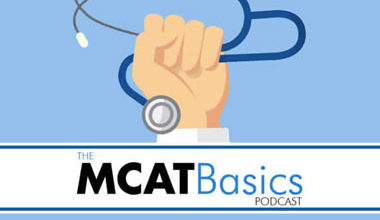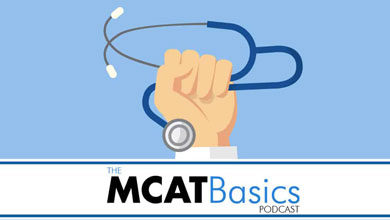Madhavi Murali discusses transitioning to medical school, resources for studying, and how students can prepare for medical school and the Step 1 exam.
- [00:44] Madhavi’s Academic Background and the BA/MD Program
- [03:41] Things Madhavi Learned When Transitioning from BA to MD
- [05:12] Resources for Developing Study Strategies
- [06:09] Using Anki to Study for Med School
- [06:51] Step Exam Going Pass/Fail
- [09:35] Difficult Courses and Study Strategies
- [11:11] The Transition from Undergrad to Medical School
- [13:09] Maintaining Hobbies in Medical School
- [14:58] The Effect of The Pandemic on Med School Students and Clinical Rotations
- [17:35] Useful Resources for Students
- [20:09] Advice for Students Applying to Medical School
- [24:57] Preparing for Step 1
- [27:33] Recommendations for Struggling Med School Students
- [28:45] The Focus of a Tutoring Session with Madhavi
The BA to MD Transition
Madhavi was attracted to the BA/MD program in part because it is a direct 6-year program, which is 2 years less than the traditional medical student route. Additionally, the program provides a lot of clinical experience over the span of those 6 years, allowing students to work with patients and become comfortable early on in their clinical abilities.
The BA/MD program allows students a smoother transition into the MD program by introducing med school courses early on. Students in the course are then able to become familiar with the material early on and work on developing study strategies that can give them an edge as they progress through the course.
Resources for Developing Study Strategies and Good Habits
Anki and SketchyMedical are Madhavi’s top 2 recommendations for developing and maintaining good study habits. Flashcard scheduling capabilities makes Anki particularly efficient and useful to med school students who are short on time. SketchyMedical is particularly useful for medical school and makes use of storytelling and videos to teach concepts in their entirety.
Med school students are also a great resource for study strategies and invaluable advice.
The Transition from Undergrad to Medical School
The transition from the BA to MD programs can be made smoother by active engagement with mentors and peers.
At UMKC, After the 2nd year in the BA/MD program, students are assigned official clinical duties and placed in “units”. These units are groups of medical students from different years who work together in internal medicine clinics and rotations.
These units are made up of med school students in different years and are an asset for students in need of advice and guidance.
Advice for Students Applying to Medical School
Madhavi urges students applying to medical school to be open-minded about their careers and embrace the uncertainty of the journey. Gaining exposure to different fields and shadowing physicians early on allows you to identify what you are interested in so that you can reach out to students and professionals in those fields.
Advice for Students Preparing for Step 1
When you’re in your classes, learn the material really well, and not just for the next test. Taking time to review the material daily, and studying to understand will make taking the Step 1 exam that much easier.
Get into the habit of watching the SketchyMedical videos on the topics you’re covering, as you progress through the course. When you begin studying for the step exam, you will already be familiar with the videos and the topics and can watch the videos as a refresher, as opposed to a lecture.
Advice for Struggling Medical School Students
Reach out to an advisor and senior students early on to ensure that you are not falling further behind. Tutoring is a good choice for students who would benefit from dedicated time and attention.
Check out this diagram detailing the glucogenic and ketogenic amino acids.
Read more about USMLE prep

